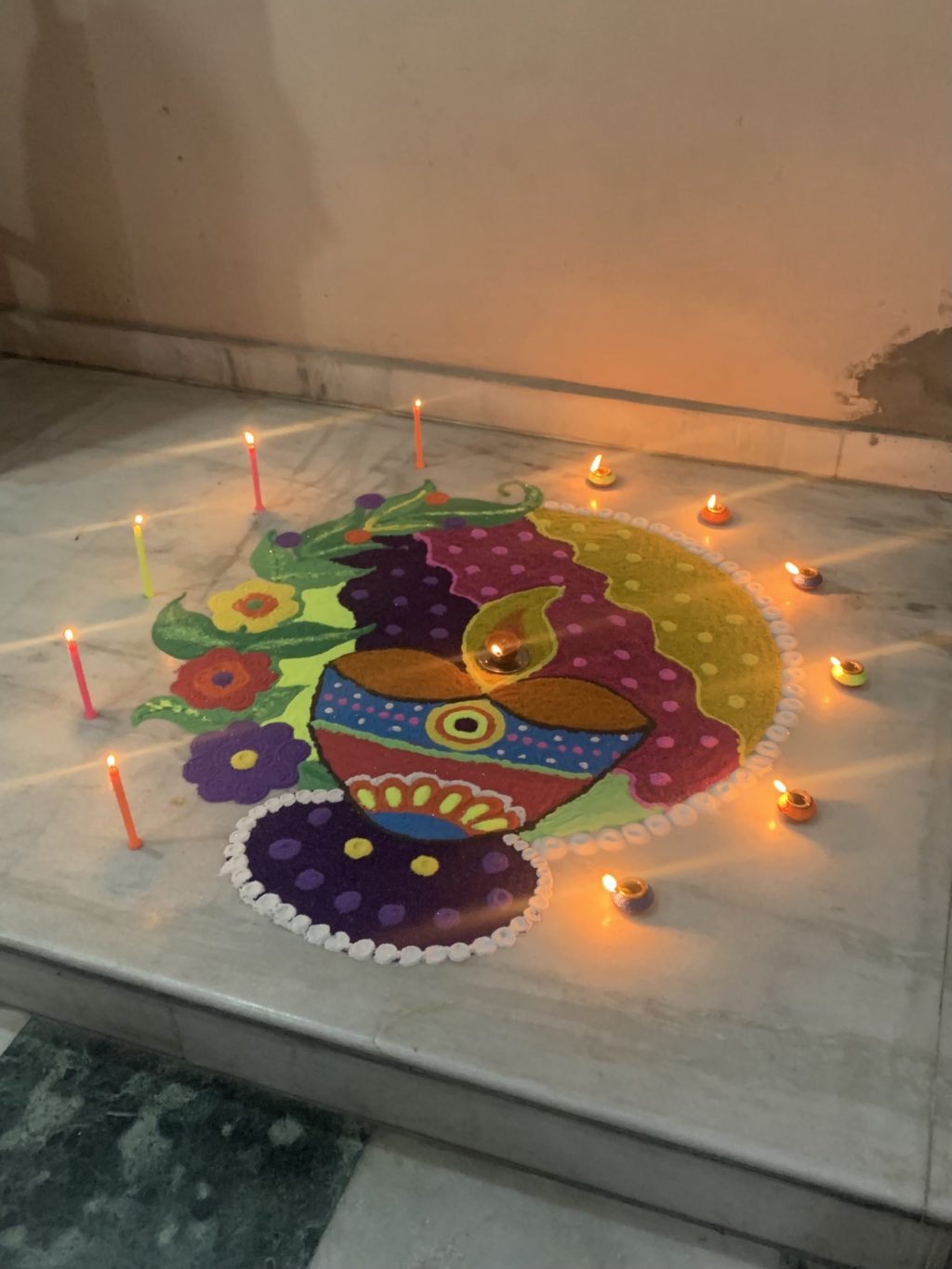During my recent visit to India, Delhi’s streets were illuminated with vibrant colors, celebrating the beautiful festival of Diwali, also known as the Festival of Lights. The contrast between Diwali celebrations in the United States and India became immediately apparent—from intricate rangoli (an art form that originates from the Indian subcontinent, in which patterns are created using colorful powders) designs to heartwarming family gatherings, Diwali, in India offered a unique and engaging experience that went beyond the dazzling lights and fireworks.
“Diwali here is more than just a festival; it’s a blend of traditions and community,” a local resident said.
The Festival of Lights was more than just a beautiful display; it was a journey into traditions and family ties that added depth to my visit. As the streets glittered with diyas (oil lamps) and lanterns, the city echoed with a sense of togetherness and cultural pride.
“The beauty of Diwali lies not just in the lights but in the unity it fosters. Each lamp symbolizes the victory of light over darkness and the triumph of good over evil,” a shopkeeper in the lively markets of New Delhi said.
Beyond its visual appeal, Diwali holds deep cultural significance, bringing families together to exchange sweets and partake in age-old traditions. In a broader sense, Diwali is a celebration that unites communities.
Exploring the intricacies of Diwali celebrations, it became apparent that the customs associated with this festival are as varied as the countries it embraces. Whether in bustling urban centers or serene rural villages in India, each location contributes its distinct essence to the festivities.
“In our village, Diwali is a time when the community comes together. The celebrations are simpler, with a focus on gratitude and simplicity,” a resident of a village in Punjab said.
“While Diwali in India is grand and full of lights, American Diwali is about connecting with diverse communities. Both have their charm, and it’s interesting to see how diverse our celebrations can be,” a United States resident who participates in the festival said.
In transitioning from the Indian to the American setting, it became clear that Diwali encapsulates a spectrum of experiences. Comparing traditions in India with celebrations in the United States highlights the diversity within the global celebration of Diwali.
“In the United States, Diwali is about embracing diversity and sharing our cultural heritage with others. The scale may be different, but the essence of Diwali remains a celebration of light and unity,” my relative in New Delhi said.
In the array of Diwali celebrations, whether in a bustling city or diverse communities in the United States, a universal message remains clear—the triumph of light, unity, and tradition. As the festive lights dim, the echoes of Diwali continue to resonate, fostering a sense of cultural pride and shared heritage across borders.Diwali Across Borders
